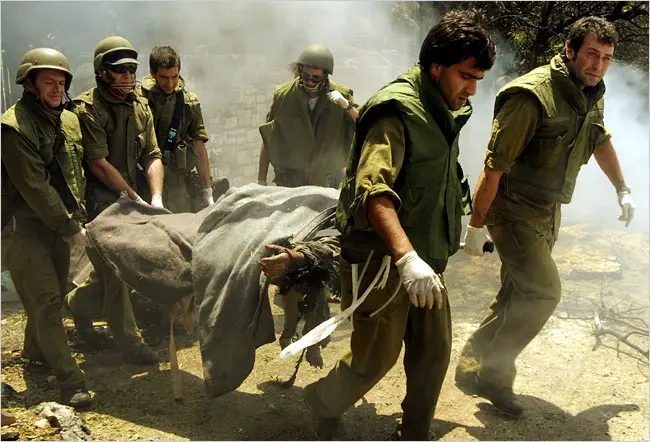Israel and Hezbollah engaged in heavy exchanges of fire over the weekend, with Israeli warplanes executing their most extensive bombardment in nearly a year across southern Lebanon. In retaliation, Hezbollah launched rockets deep into northern Israel, escalating tensions in the region.
Israeli Defense Minister Yoav Gallant announced that military operations would persist until conditions allowed for the safe return of evacuated residents in the north, signaling the potential for a prolonged conflict. Prime Minister Benjamin Netanyahu stated in a video message, “In recent days, we have inflicted a series of blows on Hezbollah that it never imagined. If Hezbollah has not understood the message, I promise you, it will understand.”
The hostilities have escalated sharply since Hezbollah opened a second front against Israel in solidarity with Palestinians amid ongoing Israeli operations in Gaza. Over the weekend, the Israeli military reported striking approximately 290 targets, including numerous Hezbollah rocket launchers, emphasizing its intent to continue targeting militant positions.
In response to the rocket attacks, which included around 150 rockets and drones aimed at Israel, air raid sirens rang out continuously. Many rockets were intercepted by Israel’s air defenses, although several buildings, including homes near Haifa, were damaged. Fortunately, no fatalities were reported, but residents were urged to remain near bomb shelters.
Hezbollah claimed to have targeted an Israeli barracks and military positions using drones as part of its retaliation against recent Israeli airstrikes that resulted in significant casualties among its ranks. An official from the Islamic Resistance in Iraq stated that coordinated missile and drone attacks against Israel had been launched, marking a new phase of support for Hezbollah.
The recent escalation follows an Israeli airstrike targeting Hezbollah leaders in a Beirut suburb, which reportedly resulted in 45 deaths, including senior commanders. The strikes have drawn international concern, with the U.N. special coordinator in Lebanon emphasizing that there is no military solution that can ensure safety for either side.
Since the onset of this conflict, tens of thousands have been displaced along the Israel-Lebanon border. The ongoing violence has resulted in over 750 deaths in Lebanon, marking the worst escalation between Israel and Hezbollah since the 2006 war. As the situation develops, fears grow that the conflicts in Gaza and Lebanon may further destabilize the region.
The backdrop to this violence includes the recent conflict in Gaza, which reignited on October 7, following a Hamas attack that claimed 1,200 Israeli lives and took around 250 hostages. Israel’s subsequent military actions in Gaza have resulted in the deaths of over 41,300 Palestinians, leading to a severe humanitarian crisis and displacing nearly the entire population of 2.3 million in the enclave.



